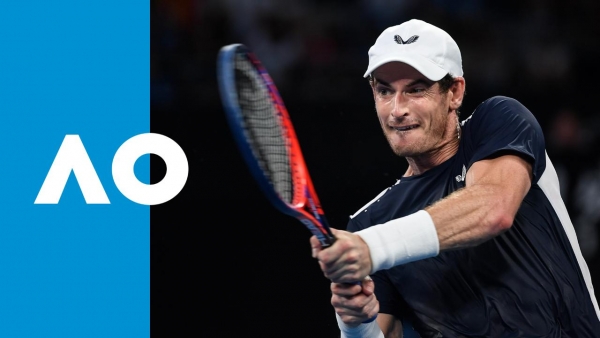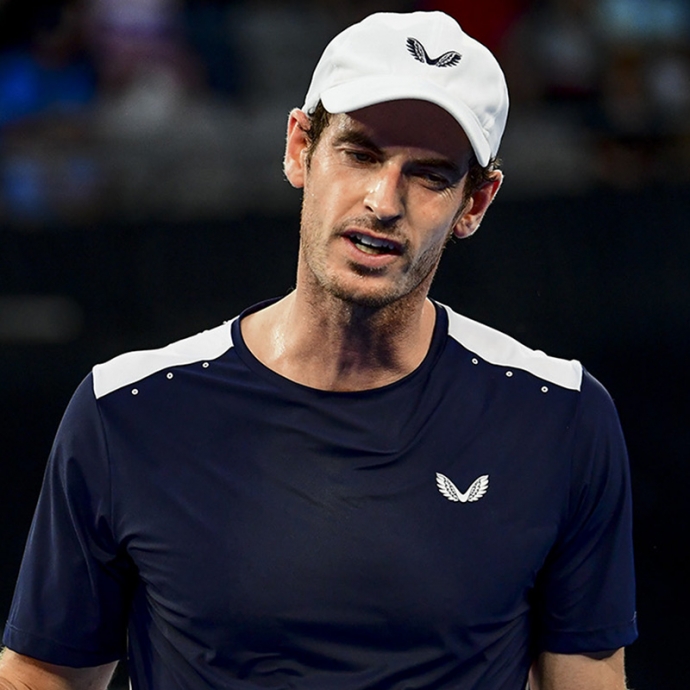It’s hard to imagine the tennis match itself could be more emotional than the press conference that preceded it.
Last Friday, Andy Murray fronted the media, immediately broke down in tears, was forced to leave the room and gather himself before returning to admit he could no longer bear the pain of a chronic hip injury.
MORE: ‘I can’t keep doing this’: Murray to call time
“I don't want to continue playing that way. I told (my team) that I can't keep doing this, that I needed to have, like, an end point,” he said. “I think I can get through this till Wimbledon. That's where I would like to stop, stop playing. But I'm also not certain I'm able to do that.”
That heart-wrenching press conference – which elicited a torrent of heart-felt messages from Murray’s fellow players and many fans – set the stage for his first-round match against Roberto Bautista Agut on Monday evening. This was likely going to be the last time people would see the former world No.1 and three-time Grand Slam champion at the Australian Open. There was not a seat available at Melbourne Arena, with almost 10,000 people standing to cheer as the Scot entered the stadium.
Murray played and fought for more than four hours before finally surrendering 6-4 6-4 6-7(5) 6-7(4) 6-2.
“I have genuinely loved playing here. The fans love tennis, first and foremost. I think they're very knowledgeable about the game. They support really well, have created some amazing atmospheres for me and lots of the other players to play in,” he said.
“Obviously tonight was the most special match that I played, even though it was the first round of the tournament and I lost. I certainly won't forget tonight, that's for sure.”
The initially hyper-charged atmosphere subsided for a while because, for the first two and three-quarter sets, this was no classic.
Bautista Agut – a terrible draw for Murray, given the Spaniard was seeded 22nd and full of confidence after beating Novak Djokovic en route to the Doha title just over a week ago – was hitting cleanly from the baseline and played with a relentlessness Murray couldn’t match.
Although he looked relatively fresh and sprightly in the opening set, Murray developed a limp in the second set, and in the third set Bautista Agut earned a break point in the ninth game.
Had he converted, he would have served for the match leading 6-4 6-4 5-4.
But Murray saved that with a backhand winner up the line. Two forehand winners followed, and instead it was Murray leading 5-4. Then crowd had come to life, Bautista Agut was suddenly guiding his shots rather than striking them forcefully, and Murray was enjoying an adrenaline-induced second wind. No longer missing and able to extend rallies longer, Murray clinched the third set in a tiebreak and the fourth set by an almost identical scoreline.
“If today was my last match, look, it was a brilliant way to finish,” Murray said.
“I literally gave everything that I had on the court, fought as best as I could, and performed a lot better than what I should have done without the amount I've been able to practice and train.
“I'd be okay with that being my last match.”
Improbably, the match had entered a fifth set. Everyone watching was now considering the very real possibility of witnessing one of the great Grand Slam tennis comebacks.
And when Murray moved ahead 0-1, 0-30, it was actually looking likely.
But then that adrenaline wore off. The errors returned. Bautista Agut shook himself out of his rabbit-in-the-headlights state, and began hitting out crisply again. In the blink of an eye, he went from being 0-1 down to 5-1 up.
In one last bid to rouse the Scot, the Melbourne Arena crowd rose to its feet and bellowed. Murray, preparing to serve to stay in the match, held his racquet aloft in acknowledgement. People have come to liberally spout the term “absolute scenes”, but this was very much that.
“I was emotional at that moment. It was cool. I don't think I've had that before in any matches. I don't know if when I came to serve at Wimbledon for Wimbledon, I don't know if that happened,” he said.
“It was brilliant.”
Murray found himself down match point, which he promptly saved with a drop-volley winner to end a 13-stroke rally.
Yet there was to be no comeback this time.
What Murray does next remains to be seen. He may take several months off before gearing up to appear on court at Wimbledon. Or he may take the surgery route – one he seemed to be leaning toward more heavily – in a bid to improve the quality of his everyday life. There would be no guarantee he would come back to professional tennis from that.
“I know that I did give my best, like, to the sport. I tried as hard as I could. I practiced hard. I trained hard, probably too hard at certain stages in my career,” he reflected.
“Like some people have said the last few days, I got everything out of my game and stuff. But I feel like I should have done better, I could have done things differently.
“I don't know what it will be, but I have tried my best.”

